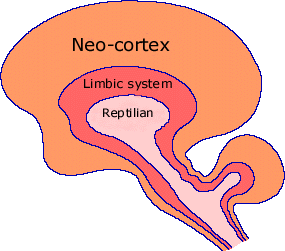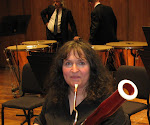This coming week the Columbus Symphony is performing a series of Young People's Concerts on weekday mornings for public school students. These students, some of whom have never heard an orchestra before, will play a part in determining our future (or lack thereof). It is essential for an orchestra to be clear about its reasons for existence, and to be able to communicate that to its supporters, both future and current.
The following TED video explains what I mean by that:
Simon Sinek shows that great leaders and organizations (including orchestras) inspire. People don't buy (or support) what you do - they buy why you do it.
A few years ago Sinek discovered that there is a pattern in the way that great leaders and organizations think, act and communicate, and it's the complete opposite of the way everyone else does it. To illustrate his point he uses the "golden circle" which contains the words why, how and what:
Every organization on earth knows "what" it does, and some know "how" they do it. But few know "why".
Making profit is not the "why", since making profit is a result. The "why" is about the following:
- What is your purpose?
- What is your cause?
- What is your belief?
- Why does your organization exist?
- Why do you get out of bed in the morning?
- And why should anyone else care?
But inspired organizations, regardless of size or industry, all think, act and communicate from the inside out. They begin with the "why".
Sinek uses Apple as an example. If Apple followed common market strategy, their message would be: "We make great computers.(the "what") They're beautifully designed, simple to use and user-friendly.(the "how") Do you want to buy one?"
Instead, Apple markets this way."We believe in challenging the status quo.(the "why") We believe in thinking differently.(the "why") The way we challenge the status quo is by making our products beautifully designed, simple to use and user-friendly.(the "how") We just happen to make great computers.(the "what") Do you want to buy one?"
Apple reverses the order of the information, beginning with (and emphasizing) its "why". Apple thinks, acts and communicates from the inside out.
People don't buy what you do - they buy why you do it, because they believe what you believe.
A fascinating aspect of Sinek's concept is that it's grounded in the tenants of biology. If you look at a cross section of the human brain, its three main sections correspond to the golden circle. The outer section, the most recently evolved part of the brain, is known as the neo cortex. It is the site of rational and analytical thought and language. It corresponds to the "what" of the golden circle. The more ancient brain is made up of the reptilian brain and limbic system. This is the emotional part of the brain, the source of feelings (including loyalty and trust), behavior and decisions, and it corresponds to the "why" of the golden circle. When an organization communicates with that part of the brain, using the "why", it is in contact with the part of the brain which controls behavior and decisions.

A symphony orchestra's mission statement offers a clue as to whether the orchestra is inspired, like Apple, or whether it's struggling like so many other orchestras. I found the following mission statement on the internet for an orchestra whose identity will remain concealed:
The ABC Symphony's mission is to advance a symphony orchestra of the highest artistic standard for the enrichment and well-being of the area. This mission is achieved through a strong connection to the community, and in-depth understanding of the marketplace and a commitment to providing programming that meets the needs and desires of the community. The ABC Symphony performs a diverse array of classical, pops, family and educational concerts each season, reaching an estimated 500,000 people through live performances and radio broadcasts.ABC Symphony clearly understands its "what" and even its "how". What's completely missing is its "why". I'm willing to bet that ABC Symphony has difficulty attracting the donations it needs to sustain itself.
Perhaps it would be possible to reset its mission (and its level of success) if ABC Symphony asked itself the following questions:
- What is your purpose?
- What is your cause?
- What is your belief?
- Why does your organization exist?
- Why do you get out of bed in the morning?
- And why should anyone else care?
Imagine this mission statement:
The ABC Symphony believes in the power of classical music to transform lives. We present classical, pops, educational and family concerts, in various venues and media, so that our music is able to touch each and every life in ABC City and its environs.I'd donate to that orchestra, because I, too, believe in the power of classical music to transform lives! How about you?
.










